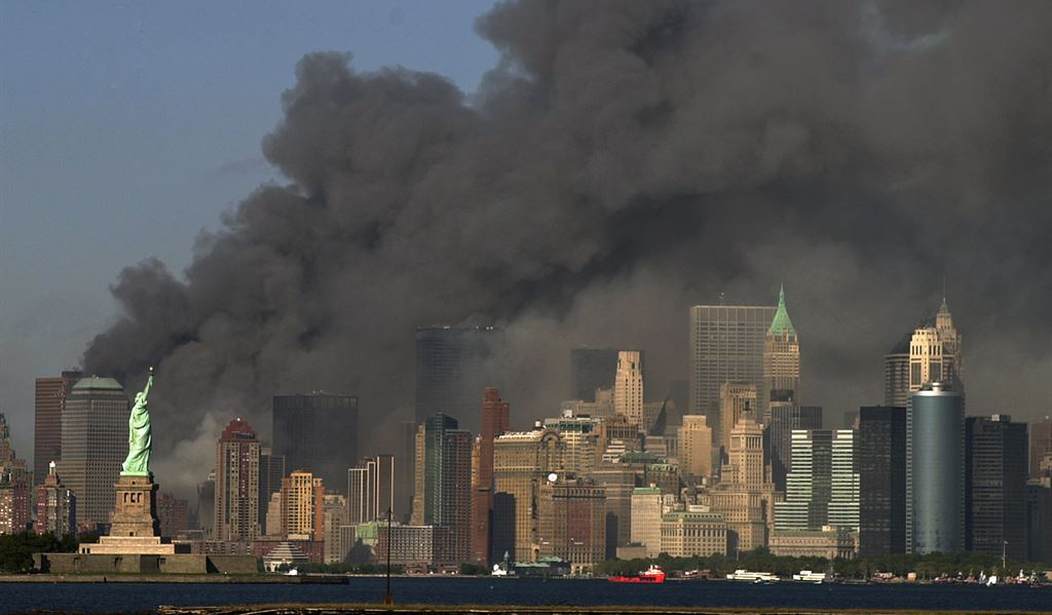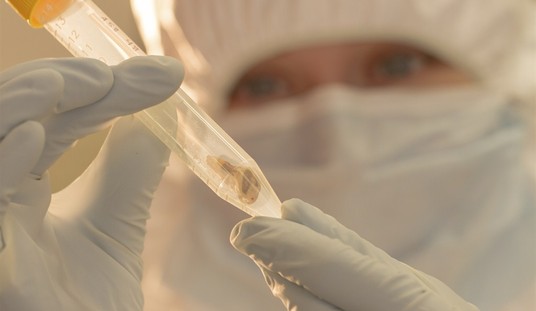Being the 20th anniversary of the 9/11 terrorist attacks, the print outlets and cable news networks are flooded with specials remembering all those who were lost on that day, as well as all of the first responders who continue to battle frequently lethal heal issues caused by their role in the recovery efforts. Suffice it for me to simply say, rest in peace.
But those lives were not all that was lost in the years that would follow. Good things came in the wake of that tragedy, but many of them were eventually squandered or simply taken away. How one views these losses clearly depends on partisan preferences. At the Associated Press, Calvin Woodward writes about how a new world took shape, but “it did not last.” He mourns the arrival of the era of “forever wars” abroad and, at home, what he describes as the rise of “the angry, aggrieved, self-proclaimed patriot, and heightened surveillance and suspicion in the name of common defense.”
President Joe Biden chose a less confrontational approach. His brief recorded message was one of mourning, but he managed to not overly politicize it. (You can view that here if you missed it.)
I will agree with Woodward on at least two points he raises, though not in the same way he shaped his message. The world most certainly did change on 9/11 and those changes were largely praiseworthy. I will also agree that those changes did not last. While Woodward chooses to focus on how America grew more divided, the real shame is how a global alliance against the horror of terrorism fell apart and how quickly it happened.
On September 14th, 2001, President George W. Bush arrived at the scene of the carnage in Manhattan to address all of the workers there who were crawling through the wreckage. In what many observers still consider one of the finest moments of his presidency, Bush climbed atop a pile of rubble, grabbed a bullhorn, and spoke the words that would come to define the rest of his presidency. “I can hear you! The rest of the world hears you! And the people who knocked these buildings down will hear all of us soon!”
In the weeks and months that followed, the world came together in a way that had rarely been seen. Our traditional allies around the globe quickly lined up to pledge their support and commit their resources to do what had to be done to respond to this unprecedented attack. But it wasn’t just our allies. Russia’s Vladimir Putin quickly agreed to allow America to take the lead in military action that would consume a country generally held to be in his sphere of influence. Even the leaders of Iran briefly put aside their hatred of America (or at least put on a show of doing so) to hold vigils for the lost American lives.
That was a singular moment. Traditionally adversarial nations joined together in recognition of the unquestionable evil of the terrorist networks who had perpetrated that heinous assault. Nearly every nation stood in recognition that the world’s sole remaining superpower had been grievously harmed, and after all of the blood and treasure that we had sunk into defending and supporting other countries, the time had come to step up and support us in return.
That was twenty years ago this week, but look at where we are now. While Great Britain remains mostly on our side, our other European allies have largely chosen socialism over freedom. America is frequently viewed with suspicion rather than respect. We are chastised if we don’t “do enough” to combat climate change or if we “do too much” in terms of poking our nose into the business of others. No amount of money that we pour into damaged regions of the world is ever enough and our stubborn adherence to capitalism (which has created wealth and opportunity in unexpected places around the globe) is widely viewed by these socialists with scorn rather than admiration or pride.
That’s what we lost in the wake of 9/11, though it took a couple of decades to largely fall apart. So as we pause to remember the victims of the terror attacks twenty years ago, perhaps we could also take a fresh look around us and take stock of who truly stands with us and who doesn’t. We still have a few truly staunch allies, particularly Isreal and the United Kingdom. But many who we once counted as unshakable partners have been acting more and more as if they fall into some sort of gray area. I’ve been saying for many years now that it’s past time for America to stop playing the role of the world’s policeman when we have so many challenges of our own to address at home. If some of our traditional allies have grown tired of us taking a leading role, perhaps it’s time to let them see how the world looks when the policeman is no longer on the beat. Much like what we’ve seen in our own cities when agitators wanted to “abolish the police,” they may find that it’s not such a fun experience.
That’s enough of my yapping. But in closing, here’s the part we should be remembering. (Turn on the volume.)








Join the conversation as a VIP Member